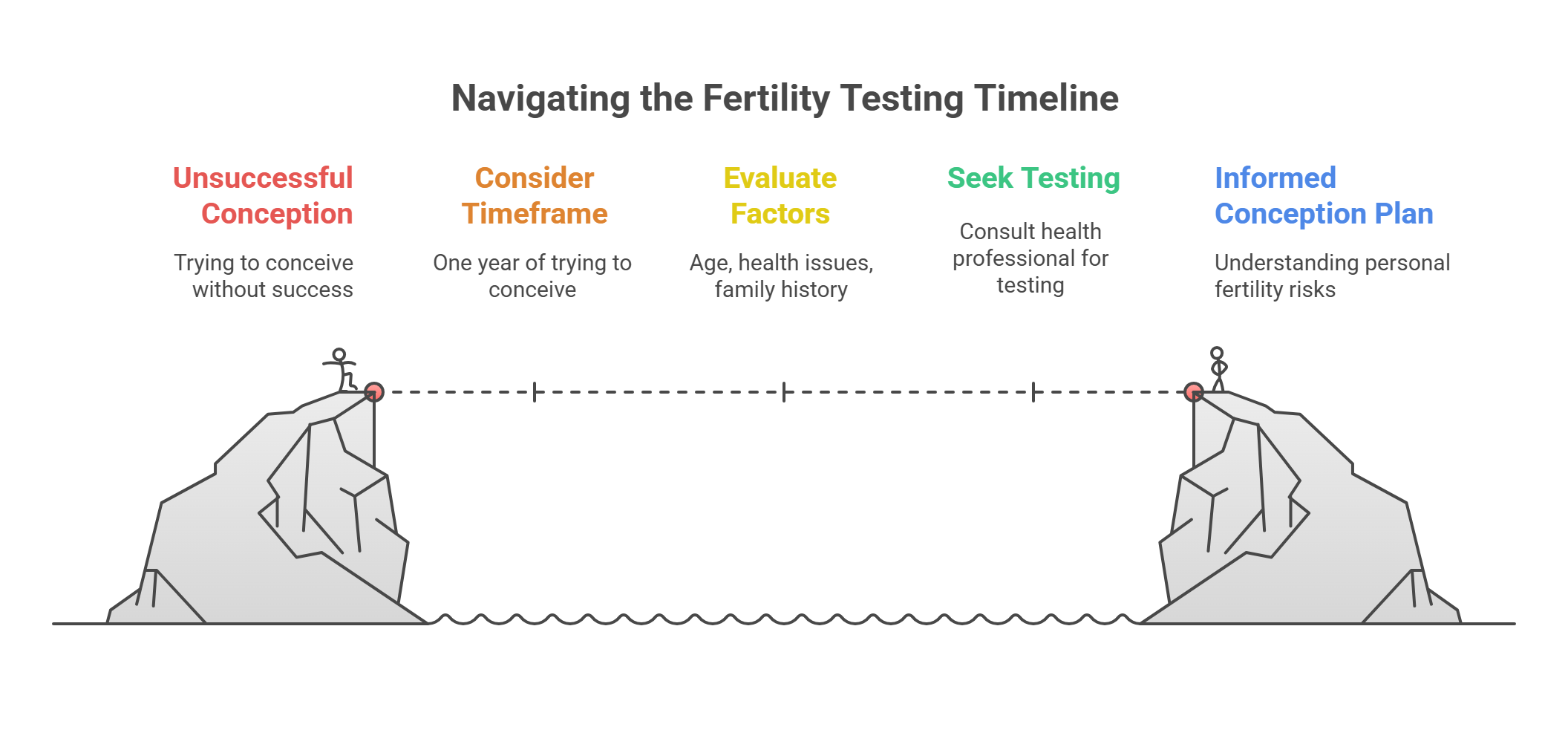
Understanding Fertility Testing: When Is the Right Time?
For many adults seeking to expand their families, the question, "When should I get fertility testing?" looms large. Fertility is a topic that encompasses various factors, from age and health to lifestyle choices. Recognizing when to seek testing can be crucial in addressing potential issues early and ensuring a smoother journey toward parenthood.
The Fertility Testing Timeline: Key Considerations
Generally, health professionals suggest couples begin to consider fertility testing if they have been trying to conceive for a year without success. However, this timeframe may vary depending on several factors:
Age: Women over 35 are often advised to seek testing after six months of trying, as fertility tends to decline with age.
Known Health Issues: If there are existing health concerns such as irregular menstrual cycles or conditions like polycystic ovary syndrome (PCOS), seeking testing sooner can prove beneficial.
Family History: A family history of fertility issues might also prompt earlier testing. Understanding the genetic background can give vital insights into personal risks.
Emotional Impact: The Stress of Delaying Testing
Deciding when to pursue fertility testing can also have significant emotional implications. The process of trying to conceive can induce stress, anxiety, and even feelings of inadequacy. Taking proactive steps by seeking testing can provide clarity and help alleviate some of the uncertainty that comes with struggling to conceive.

Innovations in Fertility Testing Technology
In the realm of biotechnology, innovative advancements are transforming the landscape of fertility testing. Methods such as at-home fertility kits or smartphone applications that track ovulation and menstrual cycles are increasingly popular, making it easier for individuals to monitor their fertility status at their convenience.
Moreover, artificial intelligence is beginning to play a role in analyzing fertility data, providing couples with more personalized insights and recommendations. These technological advancements are empowering individuals and couples to make informed decisions regarding their reproductive health.
Consulting Healthcare Professionals
Finally, it's crucial to approach this situation with the guidance of healthcare professionals. They can assist in interpreting test results, facilitating fertility consultations, and exploring treatment options tailored to individual circumstances. This support is invaluable as you navigate the emotional and medical complexities associated with fertility.
In conclusion, understanding when to seek fertility testing is a personal and sometimes daunting journey. Whether you fit the timeline criteria or simply have concerns that merit exploration, early engagement with healthcare providers can be the key to ensuring a healthier pathway toward parenthood.
To all those considering their fertility options: don't hesitate to seek the information and support you deserve. Knowledge is a powerful tool in your reproductive journey.
 Add Row
Add Row  Add
Add 




Write A Comment